He who has a why can bear almost any how.
I’m willing to do whatever it takes to run that BQ next year. I AM going to be on the Boston start line in 2020.
However, I know that just doing the same thing will likely lead to the same results, and so something has got to change this training cycle.
And I know what it is…
STRENGTH TRAINING.
Properly, consistent strength training. I’ve said it before but not actually managed to commit, however it seems to have been the topic on a lot of runners lips at the moment. And I am determined that this training cycle is going to be different. I want that BQ so badly, and know that I need to do something different.
I’ve been listening to a lot of podcasts recently, and speaking to a number of runners that have significantly improved on their marathon times. And what have they all said made a difference?
Yep, got it in one. Strength workouts.
Ashley (Running Bun) speaking on the Ali on the Run podcast talked about having a personal trainer once a week, plus doing her ‘homework’ in the gym 1-2 times a week without her PT. And similarly, James (Shoulder Runner) told me he thinks that making his gym sessions a priority was a major factor in his massive PB at the Yorkshire Marathon two weeks ago.
My friend Zoe ran a huge PB at the Chicago Marathon, and I think the PT/strength sessions she did in the lead up to her wedding this summer (and beyond? – unconfirmed from her!) would have made a big impact.
Why Strength Train?
- improve exercise energy efficiency – use less energy to run by working on stride efficiency and co-ordination
- increase muscle strength and delay onset of muscle fatigue when running
- works on balance, flexibility and mobility that will improve your running strength and power, as well as reducing likelihood of injury
- increase your speed and VO2 max!
I’ve just finished my Personal Training qualification with No 1 Fitness Education, however I am definitely not an expert, and still feel a bit lost when it comes to writing a program for runners (there was a lot of focus on weight loss on the course). However, I can take the principles and the fact that I can now properly perform the moves, and utilise this knowledge in the gym – alongside a lot more research.
A bit more about the course… we spent a lot of time going through form and how to both do and teach the big five lifts thoroughly. The deadlift has always intimidated me but I feel pretty comfortable being able to go into a weights section now to perform deadlifts, squats, shoulder press, chest press and row.
Our instructor, Paul, was amazing at simplifying how to write a basic plan, outlining a formula to help us get started. The principles were;
- Start with the big areas of your body, and work from there to the smaller parts. e.g. start on legs, then chest/back, then arms.
- For every ‘push’ action you should balance it with a ‘pull’ – e.g. a shoulder press and a lat pull down.
- Balance your body – if you’re doing your chest, you’re going to want to do your back (unless you’re doing split days). If you’re doing your quads, you should probs do some hamstrings too.
Those are the very basics, and we then talked through training systems, like Tabata, Giant sets (4 exercises in the same muscle group, back to back, with no rest), supersets (same or opposing muscle groups, 2 exercises back to back with no rest) etc, and how to incorporate them into a program. For our final test, we were given a client with a specific goal and asked to write them a training plan.
We spent five weeks going through it all in great detail…however if I’m totally honest, it still all feels a bit alien to me. Having spent a lot more time on the pavement than in a gym, I am much more comfortable in writing training plans for marathons then writing strength workouts. However, that’s something I want to change, and to gain knowledge in.
I think the PT course gave me a great starting platform, but level 3 didn’t feel in-depth enough to actually train for performance.
Personal training sessions are a huge investment. I wish I could afford to see someone twice a week, however, life as a student means that isn’t possible. I am going to invest in fortnightly sessions with Harvey, a Functional Range Conditioning Mobility Specialist (yep, not entirely sure what that is either), but I worked with him during Tokyo Marathon training to work on my range of movement and to improve my mobility and it helped a lot.
And I’m also going to be working with a plan in my own time, putting in to practice the form and knowledge I learned from No 1 Fitness.
For those of you who are looking to improve your own strength for running, I’ve got a few of my personal recommendations from trainers that I know, or follow online, who create personalised plans, or affordable training for those like me, that do not have unlimited funds to throw at their running hobby!
Online Strength Coaching for Runners
The Movement Blueprint – this is the online platform that Harvey and his business partner, Tom Bliss, have developed. I think he said it was £40 a month, for workouts in 4 week blocks. They aren’t personalised but I’m sure you can discuss options for more targeted online strength plans directly with Harv.
Train with Tashi – my friend Tashi is a speedy little runner, smashing out half marathons and 10Ks like it ain’t no big deal. Tashi did the No 1 Fitness course a couple of years ago, and has since worked hard to improve her knowledge to work with runners to develop their strength and speed. She’s even been working with Adidas here in London to host her own Run Strong class (wish it was available all the time!) She creates running specific strength training plans, and trains personal clients.
Once she gets back from gallivanting in Sri Lanka (lol), I’m hoping to get into the gym with her more regularly to take her 30 min classes at No 1 Fitness.
Madeline Moves App – Although not strictly for runners, Madeline BQ’d in 2017 (and ran Boston in the pouring rain this year). She shares some really interesting looking workouts on her Instagram and has an app that gives you weekly workouts for $20 month. In this post she shows you how to use the app if you’re training for a race.
Lift. Run. Perform – I loved working with Mary two years ago, but sadly couldn’t afford her run coaching rates. She does amazing packages from as little as $10 a month, and individual coaching for $125 per 6 week block.
(I’ll add more in here as/when I find them but feel free to leave links to any you like in the comments)
I’ve been asked to write a blog on the pros and con’s of working with online/real life trainers for both running coaching and for personal training – so please let me know if you have any questions in the comments below!
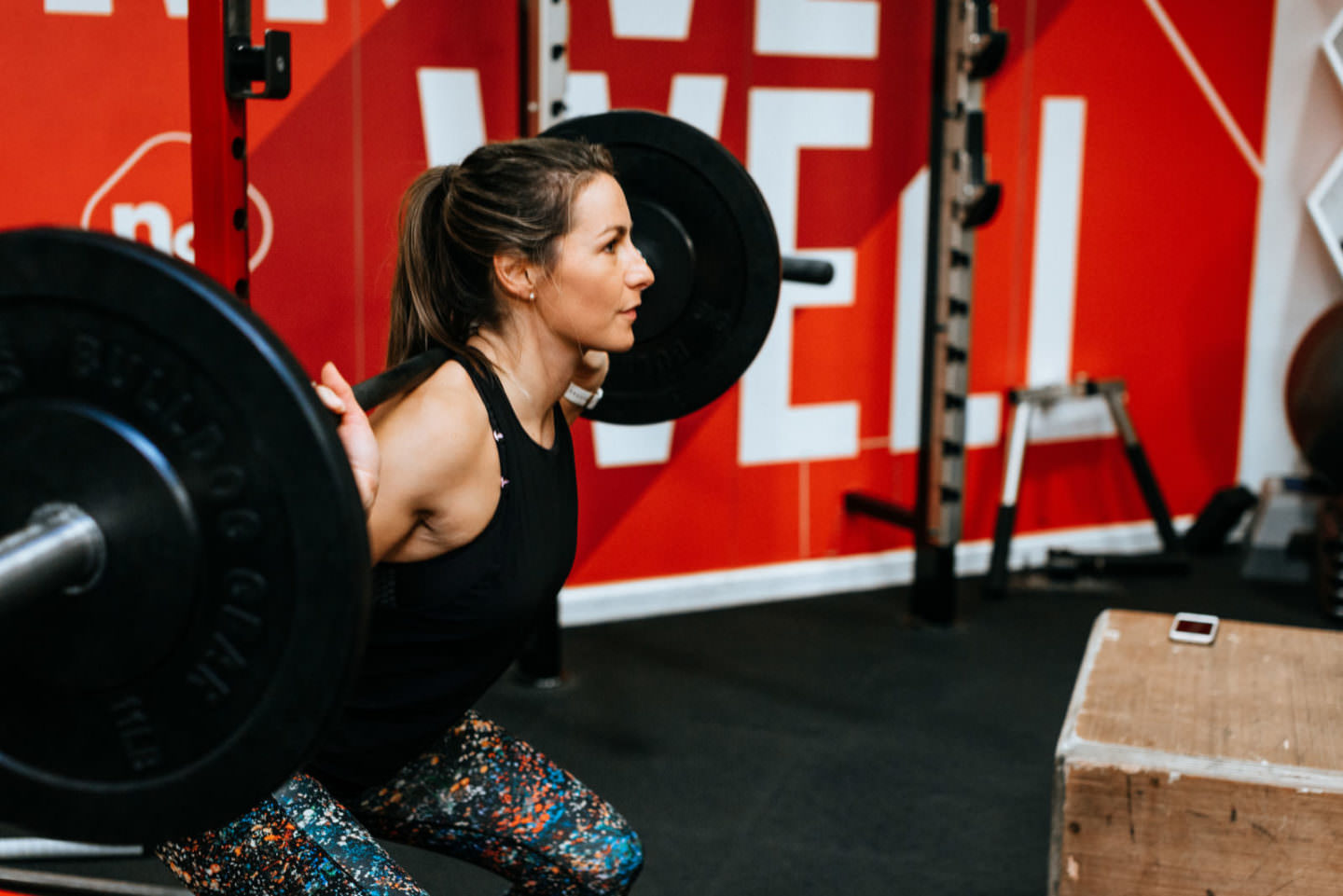
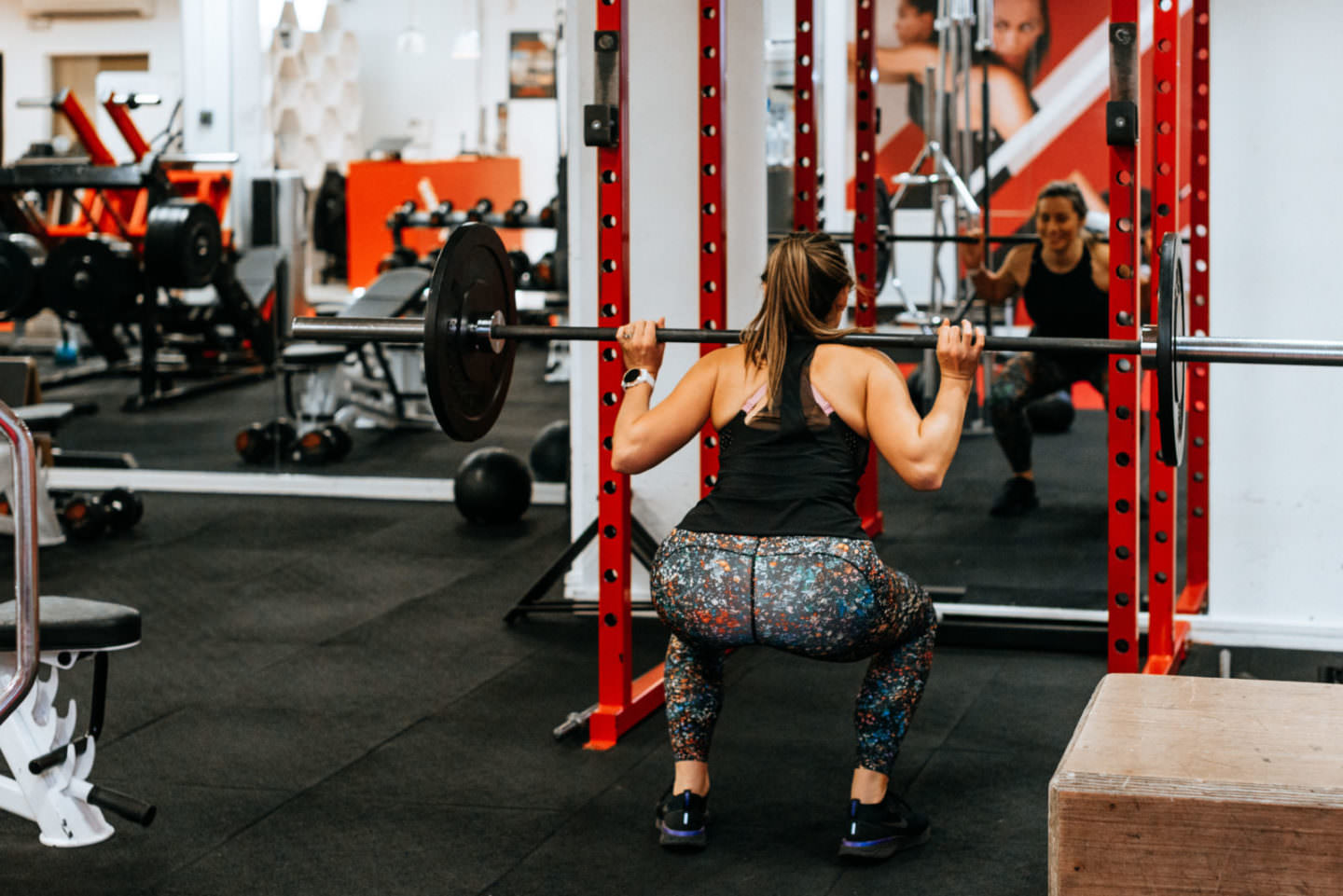
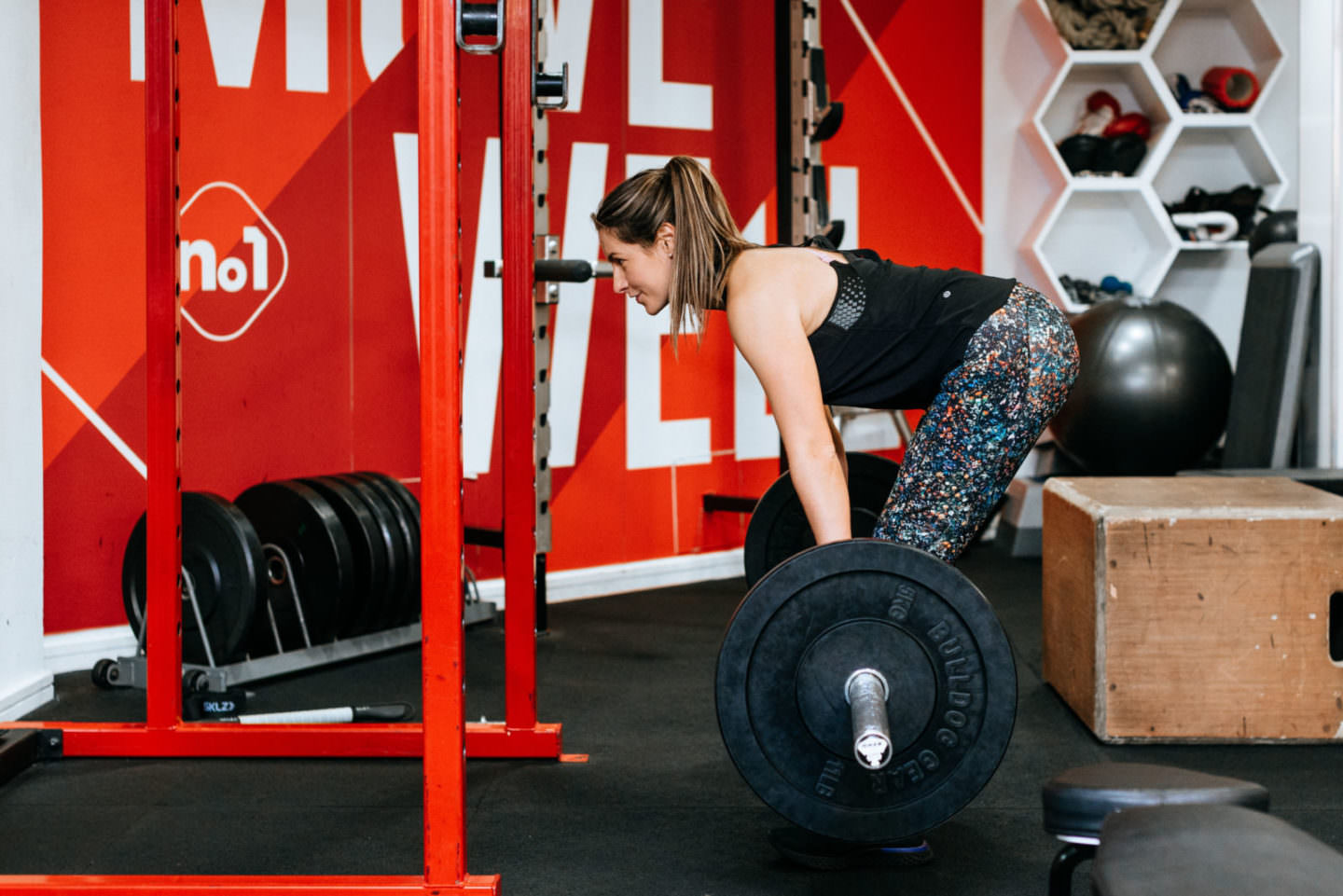
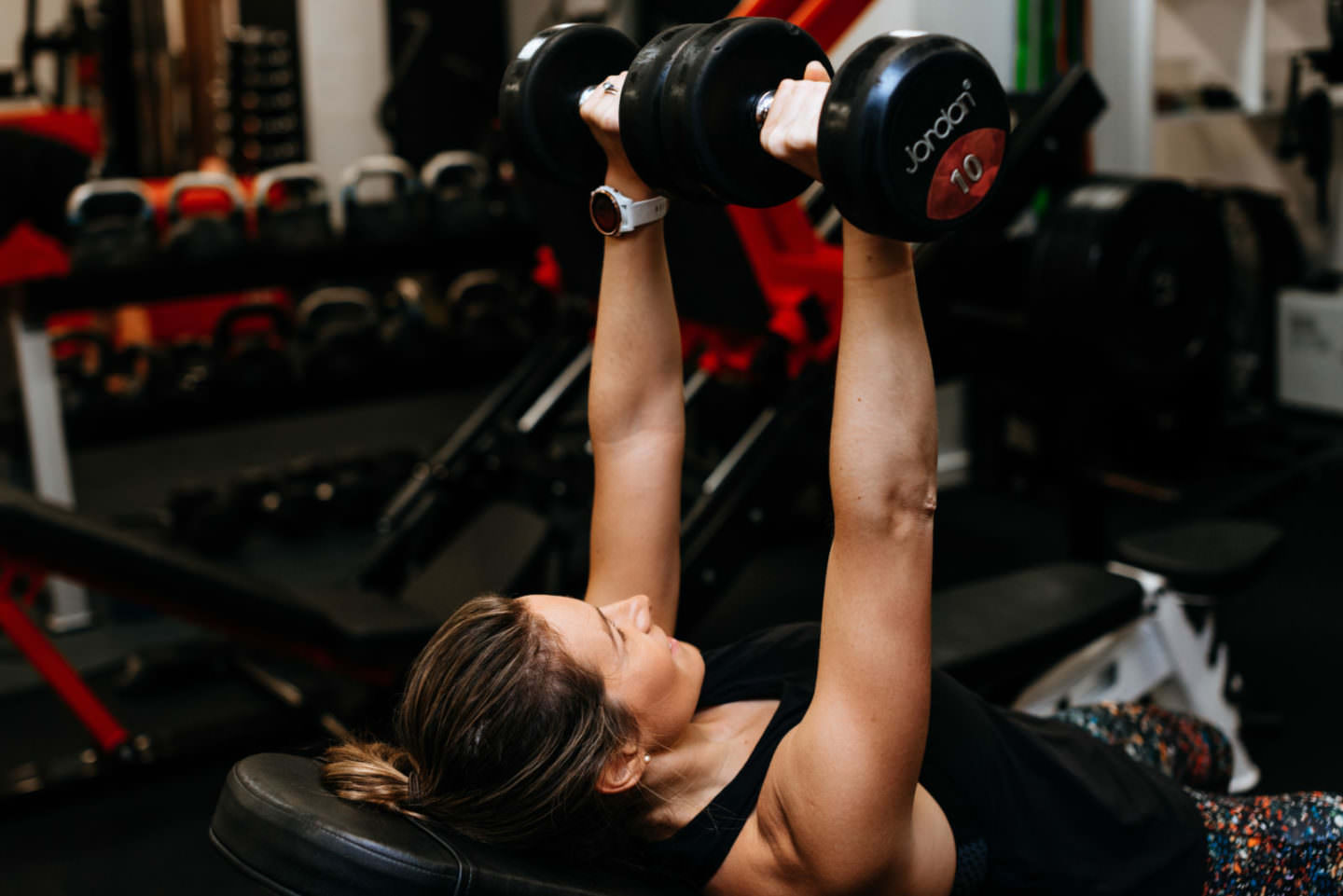
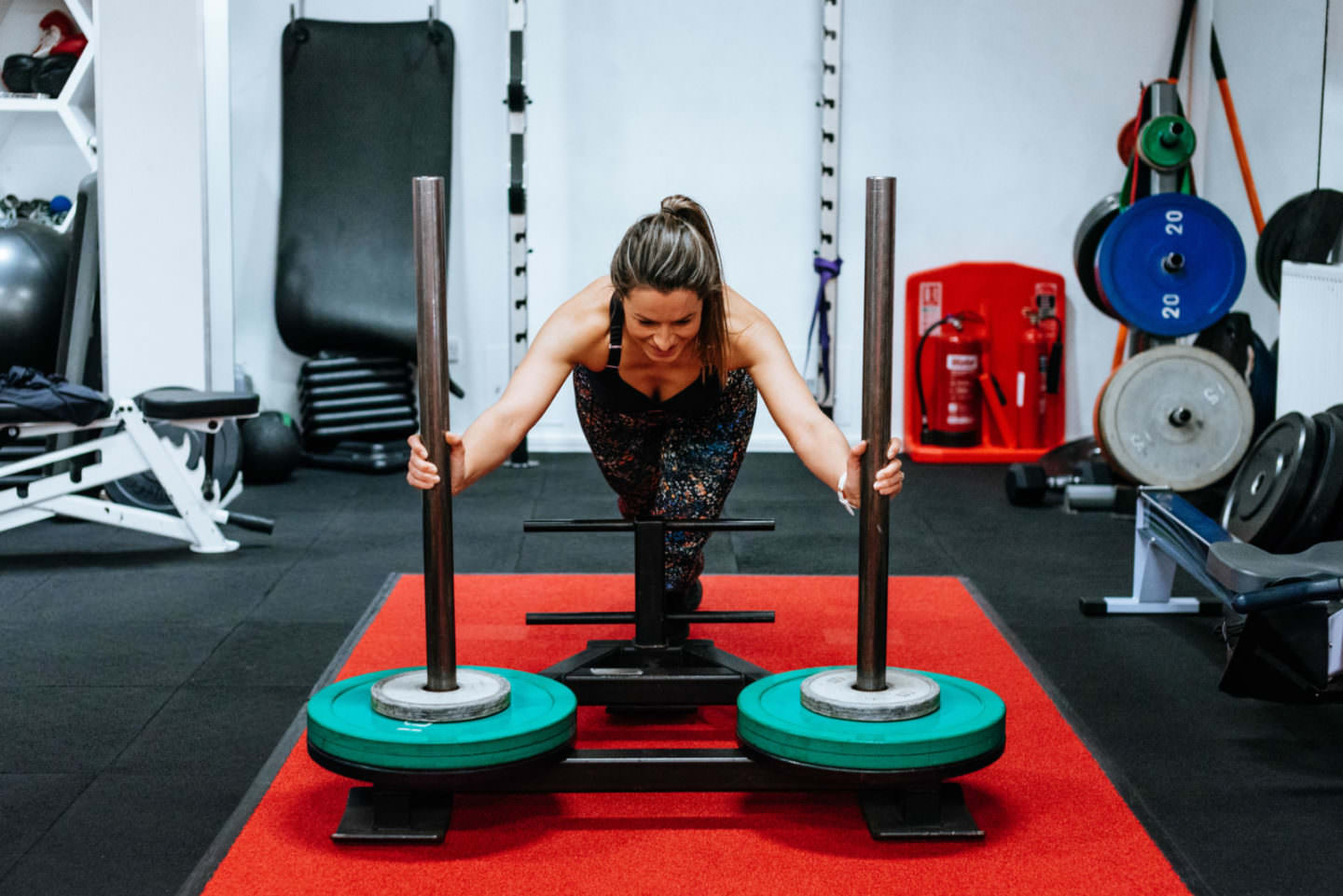
Hi just wondering had you listened to the “Rogue Running” podcast about the new Boston BQ standards (episode 95) – thought it was great. They are really honest and their opinions may be a bit controversial, but what they say really rings true.
I think strength work is important, but if you’re going for a BQ, mileage is important too. Really need to be getting in a weekly mileage of >35/40 per week to crack 3.30 in the marathon. I would prioritise that, with a bit of strength on the side.
I haven’t listened to it yet but have added it to the list! Don’t worry, still ensuring that I get the miles in! Am running 4-5 days a week, with mileage increasing each week!
I just ran my second half marathon last weekend, and this training cycle I incorporated a minimal amount of strength training compared to not doing strength training at all for my first half marathon. The difference was monumental, even with such a small volume of exercises! My running was stronger and faster, plus my recovery time from the race was just a couple of days compared to a full week the first time. Now the challenge is to strength train consistently and make it a life-long habit… Love your content! Thanks for taking the time to put together such great information for us!